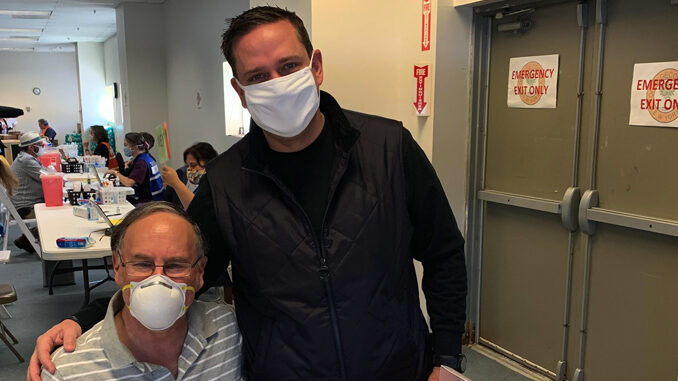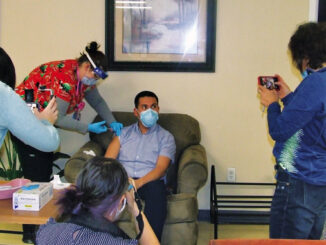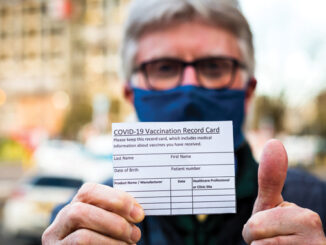
Thousands get coronavirus inoculations in Goshen
Steve Neuhaus calls it his third office. The county executive works in the Government Center and the Emergency Services Building. But these days, he’s spending a lot of time at 23 Hatfield Lane in Goshen.
It’s a storage site for the county’s Department of Social Services. But this month it’s serving a different purpose. Hundreds of people are flocking to the building to get their vaccinations. It’s a well-run operation. Instead of standing in line, the patients are seated until a worker gets their attention with a sign that says “next.”
Somewhere in the building, the county is storing its old files. I don’t see them and I don’t learn the original purpose of the vaccination room, but it’s huge. The executive and I spend a few minutes (honestly) walking from one end to the other. We’re trying to get to a room for an interview. But people keep stopping us.
As we head to the back, a woman gets out of her seat to congratulate Mr. Neuhaus. “Good job,” she tells him before sitting down again. Other people exchange elbow bumps with the county’s highest official. A former classmate is not embarrassed to share a compliment. He claims that “This is the most efficient operation there is.”
When we finally escape the crowd, the executive tells me that people keep donating food for the volunteers.
The site has been busy. On Saturday, March 6, the staff inoculated 2,200 patients. “Every time I see the sea of people,” Mr. Neuhaus admits, “I say to myself these are people who are not going to die from COVID. I’m not going to have to report their deaths.”
The number of cases and hospitalizations has dwindled. But the disease isn’t licked yet. During the first week in March, there were seven fatalities in Orange County. But the executive believes that the end is near. It feels close enough to allow a change in subject.
For a moment, we talk about the summer. “We’re planning a major air show,” Mr. Neuhaus says enthusiastically. “And we’ll have a major one-day festival to recognize our first responders. I have given my staff a warning order.”
The terminology (warning order) reveals the executive’s military background. He’s a lieutenant commander in the Navy, and he’s about to receive his first command assignment. It’s a two-year gig, but it shouldn’t involve a deployment like last year’s stay in the Middle East.
I finish the interview and head for the door. Mr. Neuhaus calls after me. “Make sure they give you a bottle of hand sanitizer,” he shouts. The woman at the door doesn’t have to be reminded. She gives me the sanitizer and thanks me for coming. She sounds like she means it.



